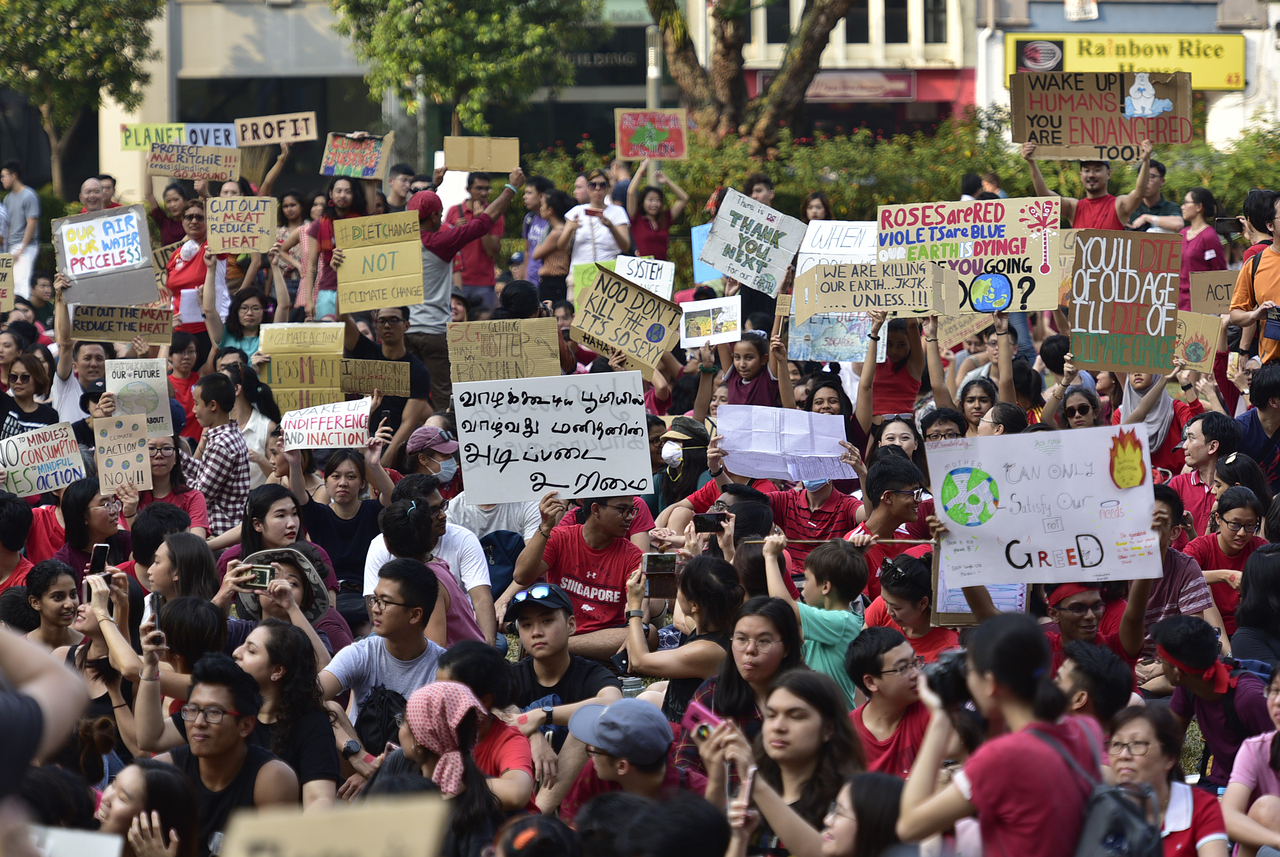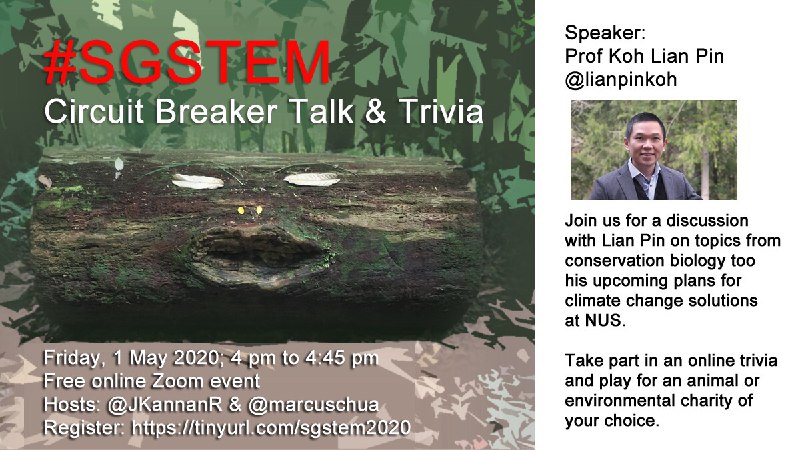Coronavirus: From a virtual 'teach-in' to online trivia, scientists and activists take outreach programmes online
Sign up now: Get ST's newsletters delivered to your inbox

A Facebook live event on April 25 will be the group's first since last September's climate rally at Hong Lim Park.
PHOTO: ST FILE
SINGAPORE - Nature walks and science talks may be off the cards during the circuit breaker period, but scientists and activists in Singapore are taking their efforts online, offering free activities that people can undertake at home.
The organisers say they are helping people to avoid feeling isolated, while engaging them on important issues.
On Saturday (April 25), a group of young people will host a virtual "teach-in" focusing on the fires in Chiang Rai, Thailand, which erupted in March.
Annual forest fires in and around Thailand's northern province of Chiang Rai had razed acres of forests and caused air quality to dip into unhealthy levels.
The young organisers of the Singapore (SG) Climate Rally will discuss what caused the fires, and the implications for indigenous peoples' rights as well as its intersection with the Covid-19 pandemic.
The 4pm Facebook live event will feature people working on the front lines of the fires, including various grassroots activists from Chiang Rai and a leader of the indigenous Karen people, a forest-dwelling community who live in the region.
Ms Annika Mock, one of the organisers, said Saturday's event will be the group's first since last September's climate rally at Hong Lim Park.
The event aims to raise awareness on the fires, which may have slipped under the radar during the ongoing Covid-19 crisis, said Ms Mock, 21.
"In line with SG Climate Rally's focus on climate justice, we believe the forest fires represent important connections between commercial agriculture, rising temperatures, indigenous Karen people's rights and regional solidarity.
"We want to make these connections clear to our audience because climate change is a multi-issue struggle," Ms Mock told The Straits Times.
More activities are being planned, she said, and people can visit the group's social media channels for updates.

Climate issues are also the focus of the Science Centre Singapore's ongoing Young Sustainability Champion online programme.
Students have access to more than 20 activities, to learn about climate change and energy consumption, among other things.
Over at the National University of Singapore's (NUS) Lee Kong Chian Natural History Museum, the pandemic may have scuppered plans for workshops but the museum plans to still bring one of its most iconic exhibits - the corpse flower - right into people's homes.
The titan arum has been dubbed the "smelliest plant on Earth" on botany research centre Kew Garden's website.
A charismatic native of Sumatra, its local name is bunga bangkai, or corpse flower, a name given due the stench it emits when flowering.
A model of the plant sits out front at the museum.
Museum research fellow Dr Gwynne Lim said people can learn more about the plant in at a webinar the museum is hosting next Monday.
Said a museum spokesman: "During the webinar, Gwynne will draw on her fortune at being able to experience multiple titan arum flowering events during her graduate school years, to delve deeper into its fascinating reproductive biology."
People must register for the talk in order to receive a link to the Zoom webinar. More details can be found on the museum's Facebook page.
Meanwhile, two Singapore biologists are also on a mission to rally the Republic's scientific community to host webinars with a unique spin.
After a short presentation by a guest speaker, the public will be encouraged to participate in a trivia session, to help them better engage with the material.
They are urged to join by first contributing $1 to a trivia pot, although this is not mandatory.
"The winner of the trivia would get to decide on the beneficiary of the funds raised for that session.
"This way, we get to raise awareness and funds for local non-government organisations, charities, and non-profit environmental enterprises to aid them in their work and service to the environment," said Mr Kannan Raja, one of the organisers who is doing his masters degree in zoology at Bangor University in Wales.
The first of this #SGStem webinars is slated for May 1 at 4pm, and would be between 40 minutes and an hour, said Mr Kannan.
NUS Professor Koh Lian Pin, a conservation scientist who helms a new research centre at the university focusing on nature-based solutions for climate change, will be the first speaker.
People who sign up for the webinar at tinyurl.com/sgstem2020 will receive details on how to log in.
Mr Kannan said he was inspired to start the initiative with NUS biologist Marcus Chua after tuning in to such science communication chit-chat sessions hosted by scientists and researches in Britain and the United States.
"This got me thinking that the scientists in Singapore, both professional and aspiring, could benefit from such a project," he said.
Moreover, such activities could also lighten the stress people may experience from being cooped at home.
He added: "With such light-hearted events, I hope to help people in alleviating their stress levels while meeting and talking with like-minded people," he said.


